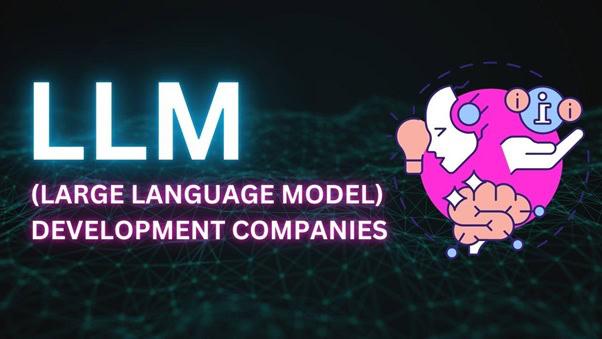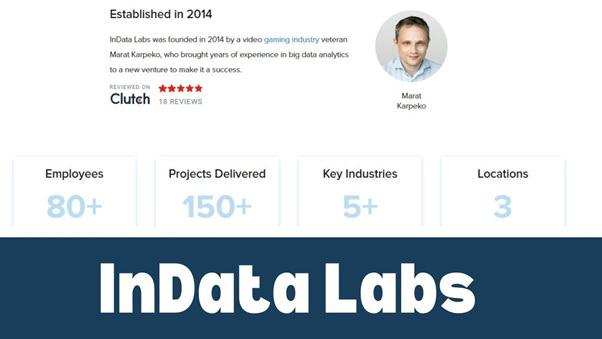The rise of artificial intelligence has transformed industries worldwide, with Large Language Models (LLMs) playing a pivotal role in this revolution. From chatbots and virtual assistants to content creation and code generation, these models are reshaping how humans interact with technology.
As of 2025, the development of LLMs has reached new heights, with several companies leading the charge in this innovative field. These organizations specialize in LLM development, creating advanced models capable of understanding and generating human-like text, revolutionizing multiple industries.
This article highlights the top five LLM development companies of 2025, detailing their headquarters, founders, and unique contributions to the AI landscape.

1. InData Labs
- Headquarters: Nicosia, Cyprus
- Founder: Marat Karpeko
- Established: 2014
InData Labs is a leading AI company specializing in LLM development, big data analytics, and AI-powered solutions. Marat Karpeko, a visionary with a background in data science and gaming analytics, founded it. Over the years, InData Labs has built a strong reputation for providing AI-driven solutions in the marketing, e-commerce, healthcare, and finance industries.
The company employs over 80 AI experts, engineers, and data scientists who work on various AI solutions, including natural language processing (NLP), predictive analytics, and machine learning models. InData Labs also partners with Amazon Web Services (AWS), enabling scalable cloud-based AI solutions.
What sets InData Labs apart is its custom AI solutions, allowing businesses to integrate LLMs into their workflows for personalized automation. With a growing client base worldwide, it continues to be a major player in the LLM development industry.

2. Anthropic
- Headquarters: San Francisco, California, USA
- Co-Founders: Dario Amodei and Daniela Amodei
- Established: 2021
Anthropic has become one of the most influential names in AI safety and LLM development. Founded by former OpenAI researchers Dario and Daniela Amodei, the company has focused on building AI models that are more interpretable, steerable, and reliable.
Anthropic gained attention with its chatbot Claude, an advanced AI assistant competing with ChatGPT. Unlike traditional LLMs, Claude is designed with Constitutional AI, ensuring its responses align with ethical guidelines and reduce harmful biases.
One of the key aspects of Anthropic’s success is its commitment to AI safety. The company has secured significant funding from Google, Amazon, and venture capital firms, positioning itself as a strong competitor in the AI race.
Anthropic’s AI safety research focuses on making LLMs more transparent and accountable. The company aims to develop AI systems that assist humans without causing unpredictable consequences, ensuring a safer AI future.
3. Microsoft
- Headquarters: Redmond, Washington, USA
- CEO: Satya Nadella
- Established: 1975
Microsoft has played a crucial role in LLM development, thanks to its strategic investments in AI. Under the leadership of Satya Nadella, the tech giant has integrated AI-powered features into its products, making AI accessible to millions of users worldwide.
One of Microsoft’s biggest moves was its multi-billion dollar partnership with OpenAI, allowing it to integrate GPT models into its services. The result? Microsoft Copilot, an AI-powered assistant embedded into Microsoft Office, Teams, and Azure services.
Beyond partnerships, Microsoft has developed its own AI models under the Azure OpenAI Service. These models are designed for enterprise use, helping businesses integrate AI chatbots, customer support automation, and business intelligence solutions.
What makes Microsoft stand out is its ability to scale AI innovations across different industries, thanks to its massive cloud infrastructure. Whether it’s AI-powered search engines like Bing Chat or AI-driven developer tools like GitHub Copilot, Microsoft continues to be a dominant force in AI advancements.
4. Google DeepMind
- Headquarters: London, United Kingdom
- CEO & Co-Founder: Demis Hassabis
- Established: 2010
Google DeepMind is one of the most respected AI research organizations. It is known for pushing the limits of LLM development. Founded by Demis Hassabis, Shane Legg, and Mustafa Suleyman, DeepMind became part of Google in 2015 and has since operated under Alphabet Inc.
DeepMind has built some of the most powerful AI models, including the Gemma series and AlphaCode, designed for natural language processing, code generation, and problem-solving. Unlike traditional AI companies, DeepMind takes an interdisciplinary approach, combining neuroscience, deep learning, and mathematical optimization to develop its models.
One of its most impressive projects is AlphaFold, an AI system that revolutionized protein folding research. This innovation has had a significant impact on drug discovery and biomedical sciences, proving that AI can solve real-world scientific challenges.
DeepMind’s commitment to AI research has made it one of the most trusted organizations in the field. With Google’s resources, it continues to refine LLMs for applications in search engines, healthcare, and enterprise AI solutions.
5. AI21 Labs
- Headquarters: Tel Aviv, Israel
- Co-Founders: Amnon Shashua, Yoav Shoham, Ori Goshen
- Established: 2017
AI21 Labs is an emerging leader in LLM development, specializing in natural language processing (NLP) models. Founded by Amnon Shashua (founder of Mobileye), Yoav Shoham (Stanford professor), and Ori Goshen, the company has made significant strides in enterprise AI solutions.
One of AI21 Labs’ biggest achievements is the development of the Jurassic LLM series, which provides high-quality text generation, summarization, and conversational AI capabilities. Unlike competitors, AI21 Labs focuses on creating modular and customizable AI models, allowing businesses to train models tailored to their needs.
AI21 Labs’ flagship product, Wordtune, is an AI-powered writing assistant used by over 10 million people worldwide. It helps users with paraphrasing, sentence restructuring, and content optimization, showcasing the company’s expertise in AI-powered writing tools.
What sets AI21 Labs apart is its focus on practical AI applications. Instead of just building powerful models, the company ensures that its LLMs are accessible and useful for businesses in media, education, and customer support.
Final Thoughts
The LLM development industry is evolving rapidly, with companies pushing the limits of AI to enhance human capabilities. From InData Labs’ custom AI solutions to Google DeepMind’s research-driven models, each of these companies is making significant contributions to the future of AI.
As AI continues to grow, the competition among LLM development companies will drive innovation, making AI more reliable, safe, and powerful. Whether for business applications, scientific discoveries, or creative tools, the future of Large Language Models looks promising.


